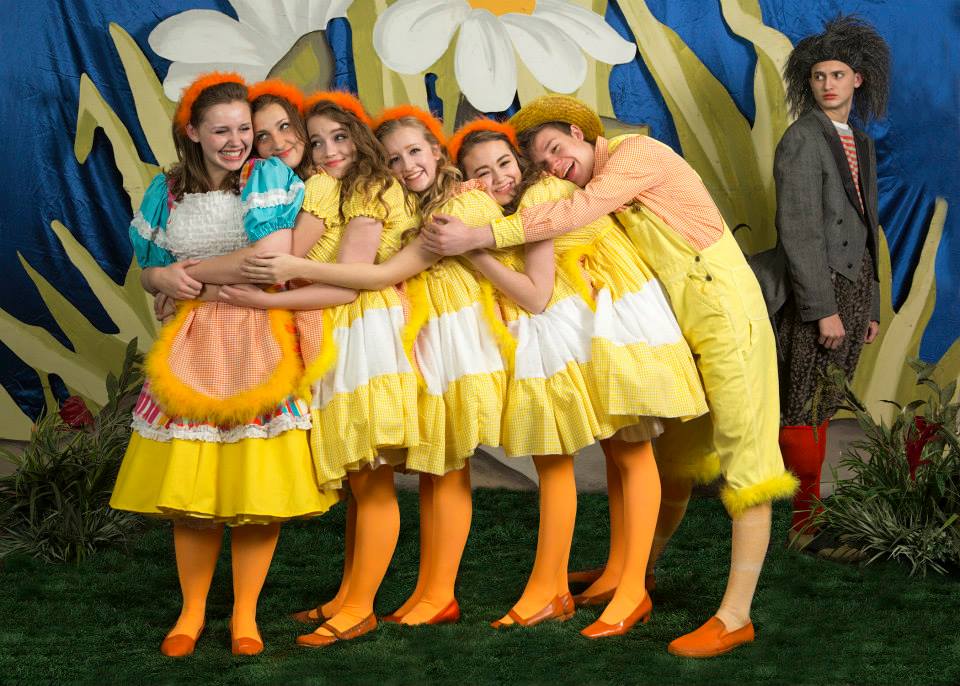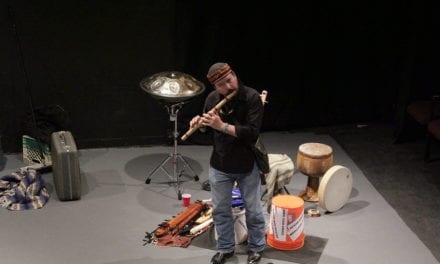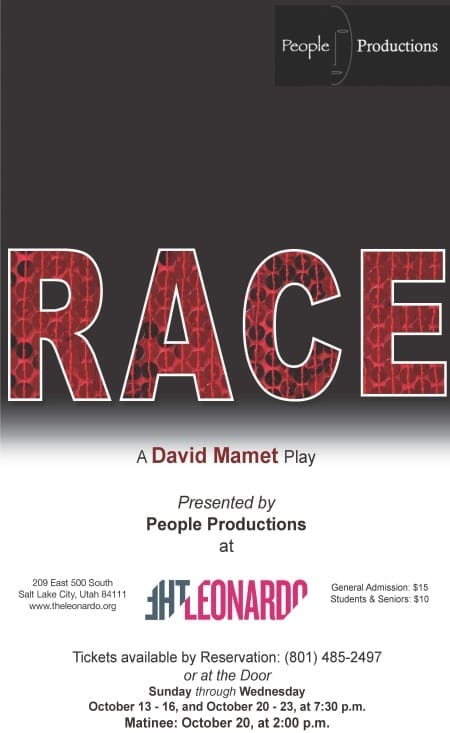SALT LAKE CITY — When choosing a Shakespearean play to perform, most theaters choose a well-known play like Romeo and Juliet or Love’s Labour’s Lost. But Westminster College didn’t go the safe route, and (rightly) chose Two Gentlemen of Verona.
Nina Vought‘s set design was built in giant pages that revolved like a monstrous Rolodex around the fountain and steps in the center of the stage. This effect tied all the set pieces together and made scene changes smooth and rapid. The sound design by Griffin Irish really helped set the mood with lively music during scene changes and perfect ambient noise—like crickets and other nighttime forest sounds. The costumes were spectacular, made with gorgeous fabric and exquisite attention to detail, like the foppish feather in the hat of the fop and the delicate necklaces around the necks of the high-born ladies. The set, sound, and costuming really pulled the whole show together and drew the audience in.
While every character was well played and interesting, there are two actors (Melissa Salguero and Tage Gould) who play parents, but look younger than the actors who are supposed to be their children. A few streaks of grey in their hair and some lines around their eyes would make it easier to keep track of which actors are supposed to be old. The relationships between Shakespearean characters can be confusing as it is, and having parents who look younger than their children can make it more difficult. They did, however, make up for their baby-sweet looks with emotional depth and articulation. Salguero played her character, Antonia, with a grace and gravity that returned even after she left the stage and her name was only mentioned.
One common problem with theatre productions is unmotivated stage blocking; people just move around the stage for no reason to make the scene more interesting. However, this was not the case in this production. The actors played croquet or card games or did laundry so their movements around the stage made sense. The actors walked across the stage for a reason. Additionally, the props all appeared appropriate to the time. There were no cheating plastic clothes pins or Bicycle-brand playing cards. That really helped keep the suspension of disbelief intact.
Perhaps the most charming character in the play was Crab, played by the rescue dog Hogan. While the human actors delivered long difficult lines, Hogan stole the show by wagging his tail and yawning and laying down. The audience loved him. He played alongside his real-life master, Jeff Nichols, who played the hilarious and articulate commoner Lance. It was a fantastic touch to have a real dog in the show.
The two servants played by Rachel Fonseca and Syd Shoell were charming and interesting, the perfect supporting best friend characters. They worked well with their masters and provided fun comedic elements that helped keep the pace rolling forward. Mina Sadoon played the musician and, even though she had no lines, her character was interesting and relatable. I was disappointed when she walked off stage. It’s the mark of a consummate actor when a character can be so well created with no words at all.
As is typical with Shakespeare’s comedies, the four lovers (Valentine, Proteus, Sylvia, and Julia) are the least interesting characters in the story. Their motivations and minds are simple, and they have all the shallowness of the privileged elite. However, the actors (Alec James Kalled, Tyler Palo, Ashley Horrocks, and Suni Gigliotti, respectively) soundly defeated the challenge of making interesting characters out of boring ones. Each added emotional depth and intricate human characteristics to their roles. They were passionate, greedy, unhinged, desperate, flawed, steadfast, immature, or obsessive. All four characters were much more interesting in this production than they are in the original script. The actors must have dedicated a great deal of work to pull multi-dimensional characters from such flat ones.
There’s a reason that some of Shakespeare’s plays are produced more than others. Two Gentlemen of Verona is not a very fast-paced, psychological, or complicated play. But this production made up for what the script was lacking. Two Gentlemen of Verona is sometimes difficult for modern audiences, but director Jared Larkin came up with an interesting solution to bridge the gap between the 16th century and 2016. The script drags significantly in places, making the two and a half hour play time feel even longer, but the quality of the production helped keep it moving as much possible.






